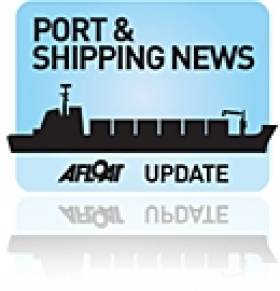Displaying items by tag: Paris Memorandum of Understanding
International Maritime Regulators Qualify Irish Registered Ships as 'Low Risk' for First Time
The Minister for Transport Mr Noel Dempsey T.D today welcomed the confirmation from the Paris Memorandum of Understanding (PMoU), on port state control that Irish flagged ships can qualify for the first time as "low risk ships" under a new international maritime inspection regime introduced from 1 January 2011.
Speaking this afternoon Minister Dempsey said; "This new low risk status will deliver very real benefits to Irish registered ships in the international maritime transport sector. It will mean significantly less inspections and greater advantages in the charter market for Irish flagged ships. It will also have the impact of greatly enhancing the maritime reputation of Ireland and will save seafarers time and money. I am pleased that the international maritime regulators have recognised the quality of Irish registered ships and their associated companies. This status was gained as a result of very significant efforts on the part of the Irish shipping industry, Irish seafarers and by officials in the Department of Transport."
Minister Dempsey added; "Last year Ireland jumped 11 places in the International Maritime Organisation's "White List" of international shipping nations to 8th position. This put us in the top tier of maritime countries worldwide. The confirmation now that Irish registered ships are classed as "low risk" further enhances our international reputation."
Under a new inspection regime international ships are now classed as low risk, standard risk or high-risk. This classification will result in ships being targeted for safety inspections. Low risk ships will be rewarded with longer inspection intervals of up to three years. Standard risk ships will be inspected every year and high risk ships will be subject to expanded inspections every 6 months. Ships with 3 or more detentions will be banned from entering ports for a minimum period of 3 months. Ships with consistently poor performance will be permanently banned.
In order for a ship to be regarded as "low risk" a key criterion is that it must fly the flag of a "White Listed" State and that the flag State must also have completed the International Maritime Organization (IMO) audit. During 2010 Ireland moved up to eight position on the "White List" and Ireland has now successfully completed the IMO Audit. These developments together have now allowed Irish flagged ships to be classified as "low risk" for the first time. By 1 January 2011 only 22 States out of a possible 169 States have attained this status worldwide.
On 1 January 2011 Ireland also implemented THETIS - the new international information system that manages ship inspections. THETIS is linked into SafeSeasIreland and since 1 January 2011 all ships have a statutory obligation to report their pre-arrival information into SafeSeasIreland. The Minister has now signed the new regulations SI No. 656 of 2010 giving effect to the new inspection regime.
























































